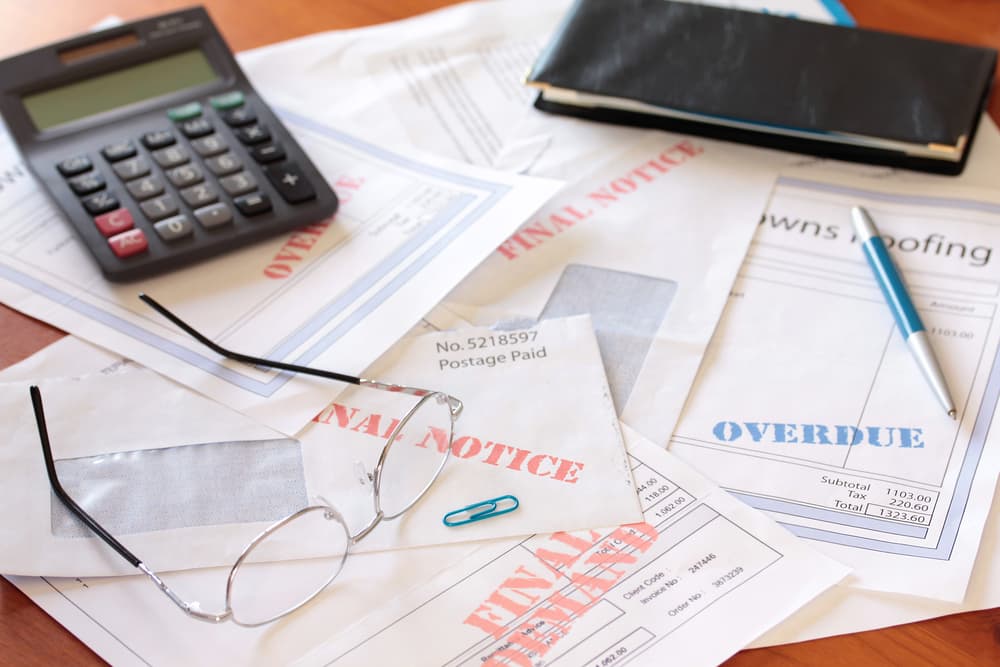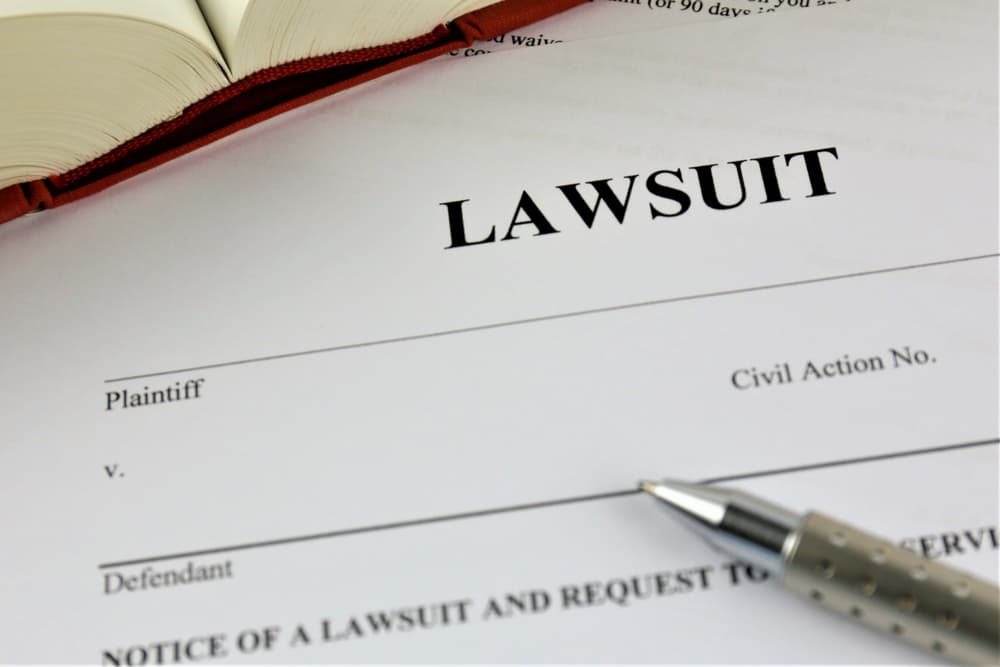For better or worse, your credit report defines you in the eyes of creditors and other parties. They will briefly examine your credit history and determine within minutes whether they want to lend you money, which can be critical when you are trying to purchase a house or a vehicle. Thus, any information on your credit report must be accurate, and any debt reports must be correct, or else you may suffer damages of your own. If incorrect information is on your credit report, the creditor and the credit bureau can be liable in a lawsuit.
You should first do what is necessary to challenge any wrong information on your credit report. If you do not get results, and the credit reporting bureau is giving you either the runaround or silence, it is time for you to take action. An experienced fair credit reporting act attorneys can help assess your legal options and file a lawsuit if necessary. The credit reporting bureau often will not listen to you independently; however, lawsuits are a language they understand.
Active Accounts Will Always Be on Your Credit Report
The question of how long debt stays on your credit report depends on whether it is an active debt and whether you repaid it on time. Sometimes, having an active revolving credit account on your credit report works in your favor. If you have an active account with a track record of paying the creditor back on time, it will improve your credit score. People who close accounts with a sound payment history find their credit score will suffer for a while. They must rebuild their credit by opening additional accounts and establishing an on-time payment record.
Your active debt will be on your report if you have an outstanding credit balance. It can be good to have debt listed in your name because creditors like to see that you have borrowed money in the past and have repaid it on time. They prefer lending to someone with a solid history rather than taking a chance on someone without a credit record. Having some debt and being responsible is the key to securing a mortgage or a car loan.
Unpaid Debts with Late Payments Will Harm Your Credit Report

You should be concerned when there is a report that you have an unpaid debt because it will affect your credit report insignificantly, making it more difficult for you to get loans in the future. It is essential that creditors report accurate information, and the credit reporting bureaus give you due process if you are challenging any data that you believe to be incorrect.
Failure to pay back the debt on time will lead to derogatory information on your credit report, and the hit will increase if your account is late by 60 or 90 days. Either way, your credit score will drop. The descent will be even worse if you cannot repay the debt. For example, if creditors repossessed your car for failure to make payments, your credit score will be significantly impaired. If you negotiated a settlement resulting in some forgiven debt, it will also appear on your credit report.
Either way, creditors have much responsibility and control over your financial future. If they report information to a credit bureau, it can take a toll on your finances for a considerable time. Thankfully, the law significantly checks what a creditor can do, but you must stand up for yourself.
The Effect of a Late Payment Diminishes Over Time
You can gradually improve and rebuild your credit. First, while it may hurt your credit, one derogatory report will not completely erase years of sound stewardship of your credit. Second, the effect of bad debt on your credit report will diminish throughout the years.
For you, the problem is that bad debt will stay on your credit report for seven years. While the hit to your credit score may lessen over time, creditors will always see the number of accounts with delinquent payments within the last seven years. Depending on the creditor, several accounts with derogatory data can be enough to keep you from getting a loan.
Be Vigilant About What Is On Your Credit Report
You must be proactive and vigilant about any information reported to the credit bureaus about you while you are trying to rebuild your credit. There are times when you may need to challenge incorrect information.
First, you must periodically check the information on your credit report from the three reporting bureaus. You need to ensure that you agree with everything in the report and that all data is correct.
You Can File an Appeal with the Credit Reporting Bureaus

You can dispute wrong information with the three major credit reporting bureaus. You can do so online or by mail, though online is often a much quicker process.
You should provide the credit reporting bureau with the debt information so they can begin an investigation. In addition, you must detail why you believe the report was incorrect, including any documentation supporting your position. The system may not protect you as a consumer, but you may receive compensation when the system fails.
How the Credit Reporting Bureaus Handle a Dispute
Once you have filed a dispute with the credit bureau, the following will happen:
- The credit bureau will begin its investigation of your dispute. They do not have to launch a full investigation of every dispute or examine disputes they consider frivolous. However, the credit bureau must furnish you with a letter explaining why it has yet to investigate.
- The credit bureau will review the information you provided and confer with the creditor.
- Based on its investigation, the bureau will decide whether to remove the information from the credit report or leave it intact. If the information stays on the report, the credit bureau must explain why.
If you disagree with the appeal results, you can defend yourself by writing an explanation for your credit report stating why you disagree with a specific entry. However, you will still feel the effect of derogatory information. Creditors may not consider what you say because they will take other creditors' word. Thus, you must do everything possible to remove wrongful details from your report.
You Can File a Lawsuit When Bureaus and Furnishers Violate the Law
There is a federal law that gives you rights regarding your credit report. The Fair Credit Reporting Act governs what may appear on your credit report and what you can do when you disagree with an entry. If someone has broken the law, you can file a lawsuit and recover damages for law violations. First, you need to hire an experienced FCRA attorney to evaluate your legal rights and whether you can file a lawsuit.
If you challenge the accuracy of an entry on your credit report, the bureau must perform an investigation because it must ensure accurate reporting. The credit bureau cannot fail to investigate and allow an incorrect entry to remain on your credit report. There is too much at stake for you, which the law recognizes.
In addition to a credit reporting bureau, you may take legal action against anyone who furnishes incorrect information for your report. Often, people sue their landlords who have made a negative entry on a credit report for alleged non-payment of rent.
Further, you can also sue resellers who pass along inaccurate information that they receive from a credit bureau. It does not matter that they did not furnish the information themselves. All they need to do is pass along false information.
You do not even need to prove that the information was false. You can file a lawsuit when the data is technically correct but misleading. Then, you must also prove that the procedures to collect and report the information were misleading.
You should sue both to clear your credit report and to hold the entity accountable that was responsible for impairing your score. You may have missed out on buying a car or a home because of what was on your report. A lawsuit is your chance to get justice and compensation for your suffering.
When you sue, you have two options:
- You can file an individual lawsuit against the responsible party using facts.
- If the furnisher or credit reporting bureau has broken the law and it affects an entire class of people similarly, you may file or join a class action lawsuit.
Your lawyer will investigate your case and advise you of your legal options.
Your Damages in an FCRA Lawsuit

If you win an FCRA lawsuit, you can recover the following:
- The actual damages you suffered from the incorrect reporting (for example, the financial losses you sustained when you failed to qualify for a mortgage because of inaccurate information or lost income for a job you didn't get after an employer checked your credit history).
- Statutory damages can be between $100 and $1000 (as an alternative to the actual damages if they were less than $1000).
Chances are that you will be unable to get punitive damages. They are not available under federal law, and many states do not have laws that allow for them. You may still be entitled to significant financial compensation when someone breaks the law.
It does not cost you anything upfront to hire an FCRA attorney. The lawyer will not ask you to pay out of pocket; they only receive payment if you win your case, and you can even negotiate attorney's fees as part of your settlement. If you do not win your case, you will not have to pay legal fees to an attorney.
Effects of Wrongful Debt on Your Credit Report
Your credit report plays a critical role in your financial health. It determines your eligibility for loans, credit cards, and even rental housing. So, you should understand the effect of wrongful debt on your credit report.
When you incur debt that you shouldn't be responsible for, such as fraudulent charges or debts from identity theft, it can have severe consequences on your credit. Even though it's not your fault, these debts can show up on your credit report and lower your credit score.
A lower credit score can make it difficult for you to secure loans or credit cards in the future. Lenders use your credit score to assess your creditworthiness and determine if you're a reliable borrower. With a lower credit score, you may face higher interest rates or even rejection when applying for credit.
Additionally, wrongful debt on your credit report can impact your ability to find rental housing. Landlords often run credit checks on potential tenants to assess their financial responsibility. If they see negative marks on your credit report, they may have concerns about your ability to pay rent on time, leading to potential rental denials.
Always address wrongful debt on your credit report promptly. Start by reviewing your credit report regularly to identify any unauthorized or incorrect debts. Dispute these items with the credit bureaus and provide supporting documentation to prove that you are not responsible for the debt.
If you're struggling with debt reporting on your credit report, seek the assistance of a credit reporting attorney.. An attorney handling credit and debt matters can handle the dispute process, working towards the removal of wrongful debts from your credit report.
Remember, your credit report is a reflection of your financial reputation. A clean and accurate credit report can open doors to better financial opportunities. By taking action against wrongful debt, you can safeguard your creditworthiness and protect your financial future.
Consult a Credit Dispute Attorney Today for Free
If you're dealing with debt on your credit report, it can be a stressful situation. That's where a credit dispute attorney can help. With their experience in consumer protection laws, they can guide you through the process of disputing and removing errors or fraudulent activity from your credit report.

Consulting a credit dispute attorney is an important step in taking control of your financial well-being. Don't let debt on your credit report hold you back from achieving your financial goals. Consult a California consumer protection lawyer today.